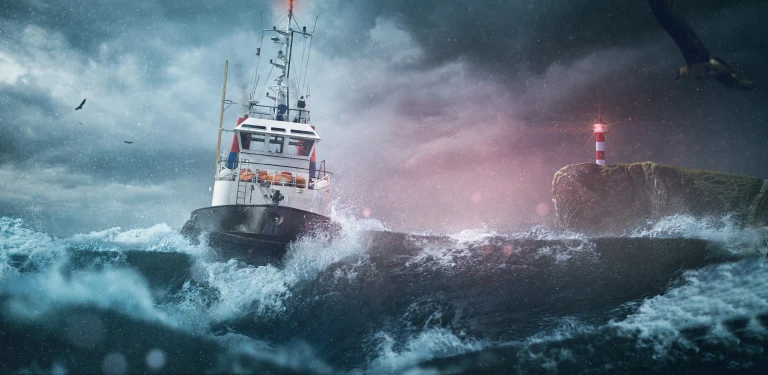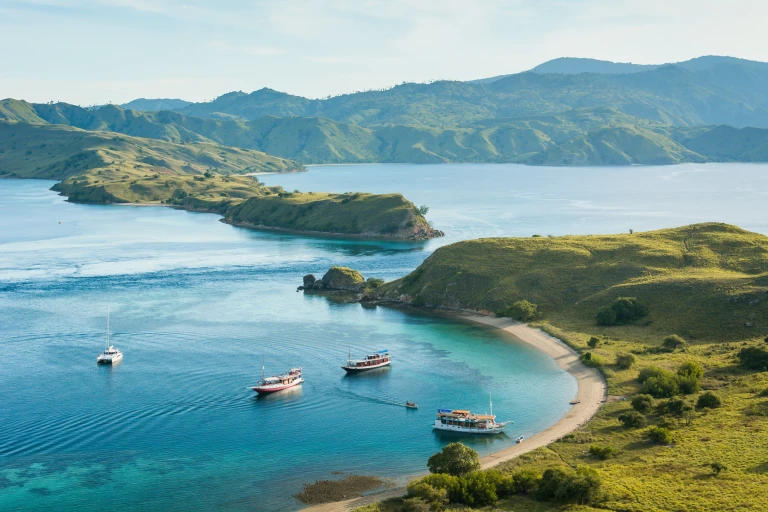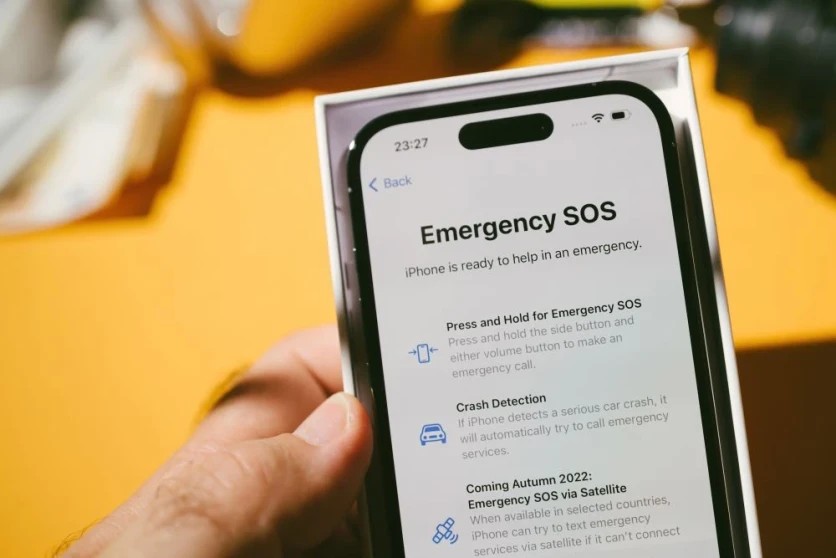The waters surrounding the island of Bali sometimes conceal serious dangers. And it's not just about swimming in the ocean, but also about traveling between islands. Ferries and speedboats are the most common modes of transportation to get to Nusa Penida, Java, or the Gili Islands near Lombok. Sometimes such journeys coincide with stormy seasons (from December to March).

The route to Lombok Island passes through a strait sometimes affected by completely unpredictable weather phenomena. This is due to the complex underwater terrain and underwater currents created by the waters of the Indian and Pacific Oceans. Even though the weather may seem favorable from the shore, conditions on the water can be quite the opposite. And there's no guarantee that local transportation companies will decide to wait out the storm on land. Unfortunately, incidents of small boats sinking occasionally occur in Indonesia.
It's better to at least theoretically prepare for such unpleasant situations before setting off from the coast. Neglecting safety means risking your vacation and sometimes even your life. For responsible adventurers, we have prepared water safety rules.
So, if you decide to travel to one of the islands surrounding Bali (Nusa Penida, Lombok, Gili), it is worth familiarizing yourself with the following rules to enhance overall safety.
Rules of conduct on board water transport:

- Wear a life jacket: of course, wearing it throughout the entire voyage may not always be practical, but you must ensure its presence and location (in case of a storm, the crew will distribute life jackets)..
- Report any emergencies immediately to the ship's crew. Your vigilance can reduce response time to such incidents, thereby allowing for their prompt resolution or containment..
- Do not attempt to fix any malfunctions yourself: yachts, speedboats, and boats are complex mechanical devices that often require qualified assistance..
- During and before the journey, consumption of alcohol is strictly discouraged, not to mention prohibited substances. In case of an emergency caused by an intoxicated passenger, criminal liability may apply..
- Entering or jumping into the water from the vessel is prohibited, except in cases specifically provided for by the tour or in extreme circumstances for rescuing a drowning person..
- In the event of seasickness, notify the crew and go to the upper deck. Purchase motion sickness remedies in advance if needed..
- Familiarize yourself with the ship's safety equipment and its location (in a critical situation, this knowledge can save lives)..
- If traveling with children, provide them with verbal instructions and do not leave them unattended during the voyage..
- Hanging over or leaning across the ship's railing is prohibited..
- In the event of a threat of the ship sinking, prevent any manifestations of panic among other passengers. Wait for instructions from the crew and, if necessary, evacuate the ship in an organized manner. Panic can do more harm than water. A ship does not sink instantly like a stone. Usually, there is time for adequate response..
- If the ship starts to list and loses momentum, immediately put on a life jacket for yourself and your children, fasten the straps, check the whistle, and firmly grasp objects that allow you to maintain balance and prepare. In an emergency situation, the captain must send an SOS signal and notify the crew and passengers of the need to abandon the vessel. It is extremely important (!) not to leave the ship until the engines and propellers have completely stopped, as it is deadly dangerous..
- The waters surrounding the island of Bali are warm year-round, with the likelihood of freezing or being attacked by underwater predators virtually negligible. Your main enemy is panic and chaotic actions. A storm significantly complicates the situation, and in this case, it is often best to wait for a rescue boat..
- Excessive attachment to your gadgets and personal belongings can potentially play a fatal role. If you take items with you on your trip that are susceptible to water damage (gadgets, documents, etc.), make sure to purchase special hydrophobic cases and packaging in advance. Waterproof bags are also widely available for sale. Attempts to save a hypothetical quadcopter can lead to dire consequences..
- In the event of a person overboard, immediately and clearly notify the ship's crew. Utilize rescue equipment (lifebuoy, life jacket, buoy). If you cannot swim, under no circumstances jump overboard, as you are likely to go from rescuer to victim..
- Remember, the primary rule for rescuing drowning individuals in water is to provide competent and clear assistance. Never approach the drowning person head-on, as panicked individuals may grab onto you and drag both of you underwater. Swim from behind and either grasp the person by the shoulder or lift their face above the water. In cases where the person offers little resistance, it's appropriate to hold them by the waist with one hand and head towards the nearest safe place (vessel, shore). Administer first aid immediately yourself or find someone who can do it as quickly and effectively as possible..
- During a storm, it is prohibited to open the cabin's side windows and leave your seat..
- Engaging in discussions with the captain while the vessel is in motion is prohibited. Ask any questions either before or after docking..
- Keep your purchased tickets until the end of the trip; in case of an emergency situation, they will serve as evidence of your actual presence on the vessel.
- Choose a responsible carrier with good reviews. Tickets to the islands can be purchased from MyBaliTrips.com.
By following these simple rules, you'll make your trip safer and more comfortable. Enjoy Bali and the neighboring islands!

You can add one right now!